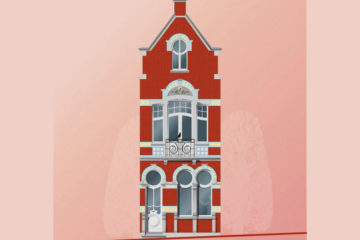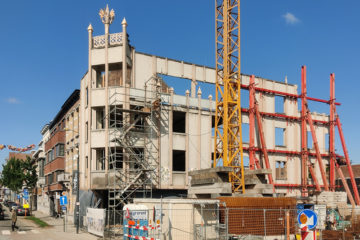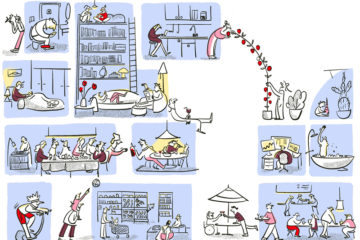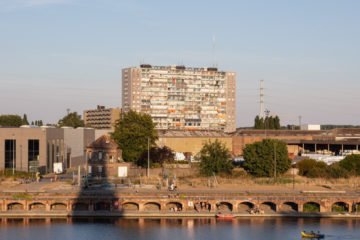Lecture: Christian Kerez
Architectuurwijzer invites Christian Kerez because his works present a rare consistency. That kind of design strength, devoid of any urge just to innovate or show off, can also be found in the works of many a Belgian architect. At first sight, concepts such as ‘use’ and ‘meaning’ seem to threaten to push Kerez’ work to the background, but it is just that specific persuasiveness of his constructions that entices people to improvise. See, for example, the school in Leutschenbach. People tend to take Kerez’ architecture to their hearts because they are allowed the freedom to fill in some things for themselves. Kerez’ architecture is (constructively) hardcore, but there’s also a softer side to it.
Like Le Corbusier, Swiss architect Christian Kerez has a special interest in dams, power plants, spectacular roads, bridges and industrial complexes. Unlike Le Corbusier in his ‘Vers une architecture’, Kerez’ interest does not arise from ‘the virility of the engineer, which would be much larger than that of a contemporary architect, but from the simple wish to expose the unpretentious character of those structures, for inspiration.
Christian Kerez is both a designer and a builder. His architecture is relatively businesslike and uncomplicated. It always relies on a crystal clear form of construction, executed in an ultra-consistent manner, which is what makes it so special. The quality of his work lies precisely in that hard-to-describe correctness. The beauty of Kerez’ buildings stems from the sophisticated use of materials and the quality of the detail, which is different every time (stone, steel, concrete, …). Aesthetics is not a goal in itself, but it is the result of a design process wherein everything works perfectly.
In the context of Reyers 2020 (the television programme concerning the design competition for the new VRT building), Canvas described Kerez as ‘probably the least well-known architect in the competition’, though he is widely admired within the architect fraternity. Among architects, Kerez has been considered a legend since his ‘House with one wall’ (2007) and the school in Leutschenbach, near Zürich (2009). Previously, he worked with Morger and Degelo on the art museum in Lichtenstein (2000). In 1992, the then thirty-year-old architect built a small chapel in the Swiss Oberrealta, which has since reached cult status.
Practical information
Lecture: Christian Kerez (English)
Wednesday 5 October 2016, 20h15
C-mine cultural centre Genk, main hall
Entrance: 8 euro or 3,5 euro for students
Reservation via C-mine cultural centre Genk.
Photo ‘House with a missing Column’, Zurich, Switzerland, 2009-2014 © Georg Aerni



